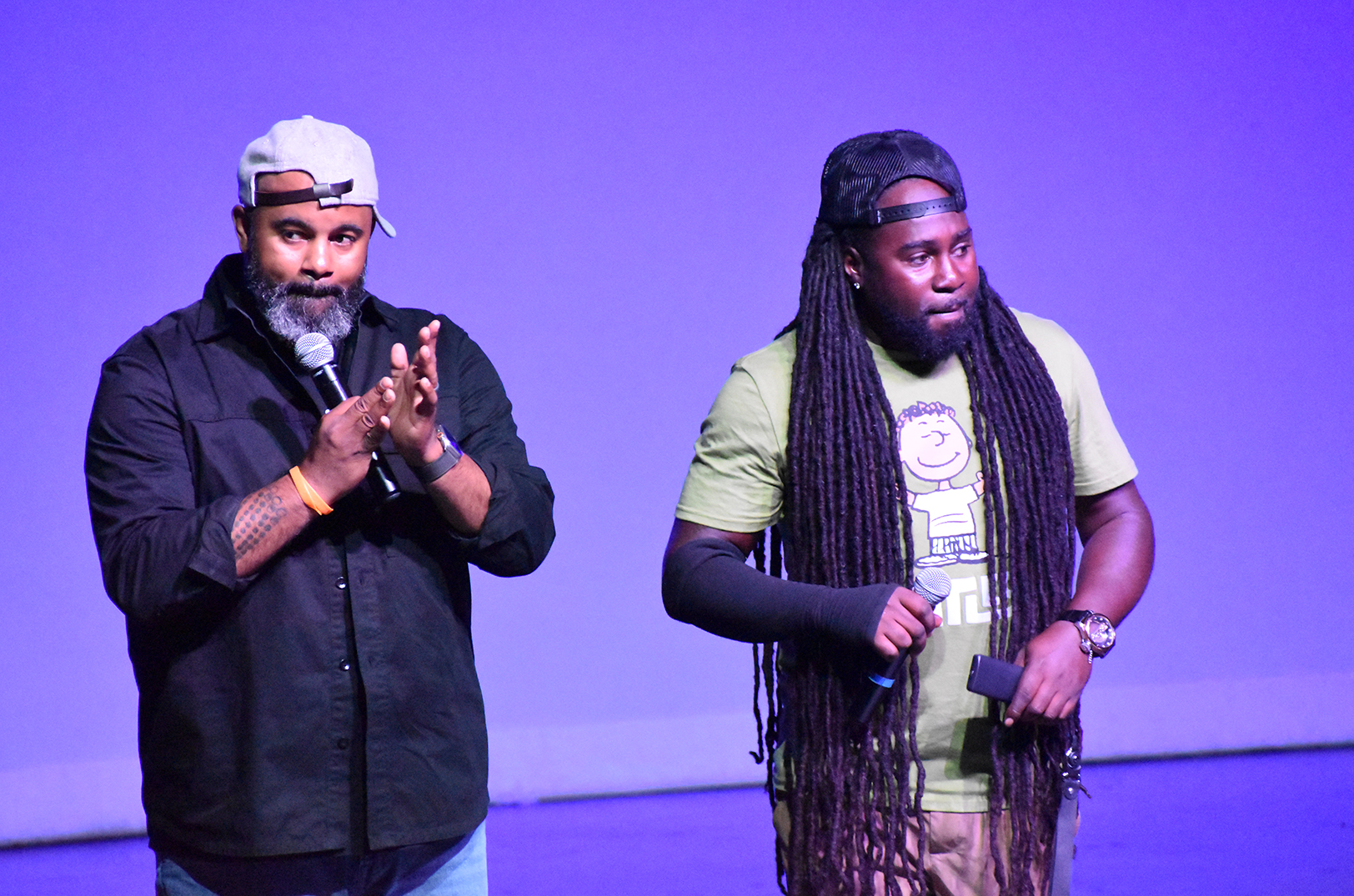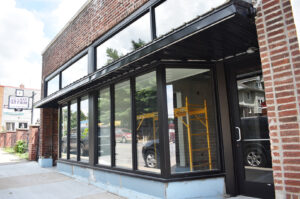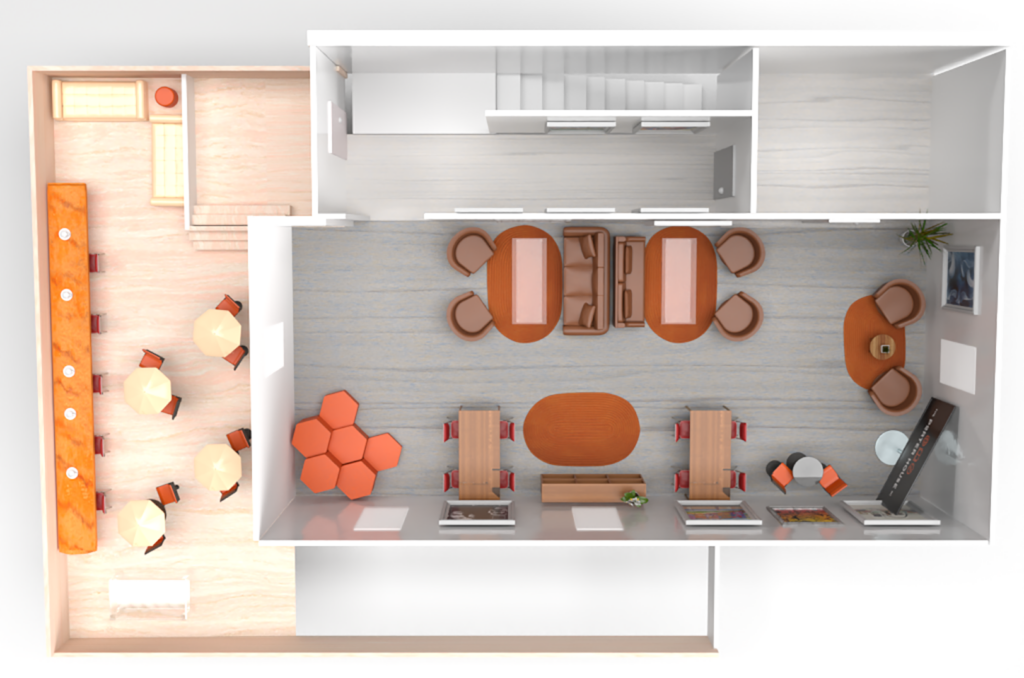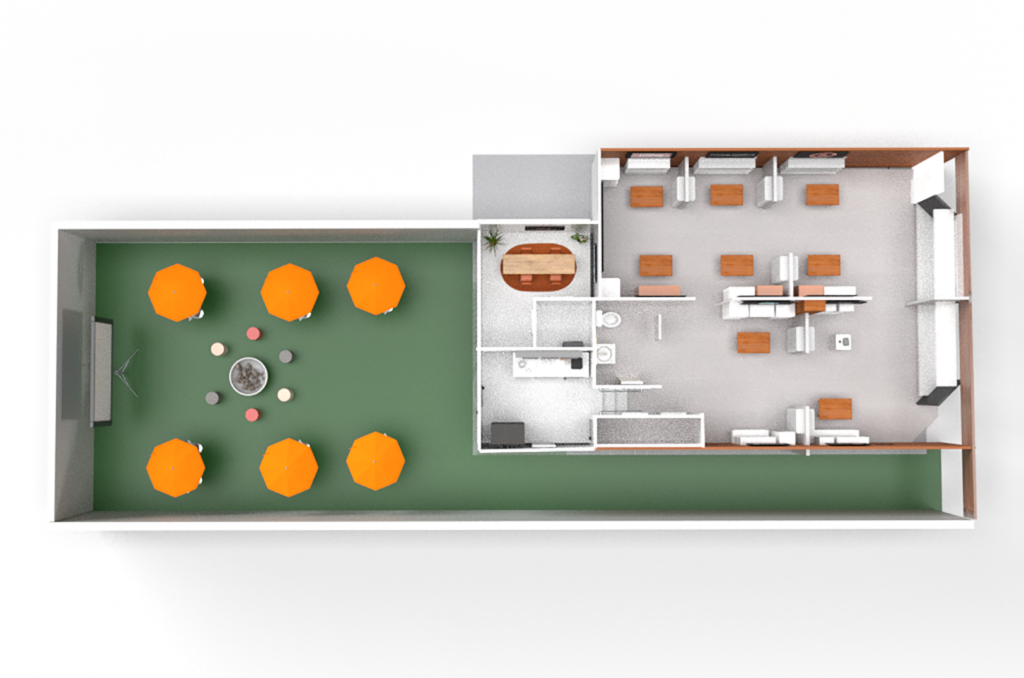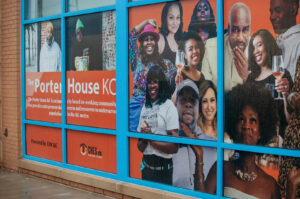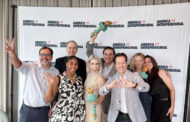Funding from a pilot physical infrastructure grants program is expected to help The Porter House KC complete phase 2 of the build out for its new 811 Retail Incubator, focused on boosting retail entrepreneurs from the urban core.
“This grant will allow us to serve over 90 small businesses focused on retail operations within the next five years, adding over 200 new jobs within the same timeframe and an increase in the opportunity for an increase in wage growth,” said Dan Smith, co-founder of The Porter House KC, describing expectations for the in-the-works physical space at 811 E. 31st St.
The Porter House KC serves early stage entrepreneurs and businesses that are attempting to launch or expand, but have been halted or delayed by the need for greater education or more resources.
Its 811 Retail Incubator proved a fit for the Missouri Technology Corporation’s pilot Physical Infrastructure Grant Program, which seeks to ensure entrepreneurs throughout the state have access to the physical infrastructure and resources required to launch and grow their businesses.
More than $1 million was awarded this week through the program. MTC did not publicly release the local grant amount, but The Porter House KC detailed plans for its impact.
The infrastructure for the 811 Retail Incubator includes nine retail-focused “booths” where early-stage main street entrepreneurs can lease space at a low-cost, short-term lease period, to showcase and sell their products, Smith said.
The space will also be equipped with temporary structures, digital displays, and storage areas for entrepreneurs to house, market, and display their retail-based products. Additionally, the 811 Retail Incubator will feature high-speed internet access, a coffee bar, private office space, an upstairs multi-purpose classroom and event space, and essential amenities like bathrooms and changing rooms.
“With this physical infrastructure being located in the heart of Kansas City’s urban core, this will allow not just entrepreneurs, but the community, accessible access to visit, work-in, and understand the space,” Smith said. “The goal of this environment is to provide entrepreneurs the opportunity to run their businesses in a brick-and-mortar setting, with a low barrier to entry with low-lease rates, access to professional development (the Growth360 Program in partnership with Missouri Small Business Development Center), and a supportive environment to fail and rebound quickly in an industry that is often less forgiving to a small business owner.”
The Porter House KC expects to rotate entrepreneurs through the incubator within as quickly as six months, and up to 18 months for some small business owners, he said.
“The rotation will depend on a few factors, however our objective is to prepare these entrepreneurs for life; owning their own brick and mortars,” Smith said.
The incubator’s first entrepreneurs are expected to be selected when the space is completed. Its first phase is expected to open in October, followed by the second phase — powered by the Missouri grant funding — in early 2024.
The Porter House KC plans to remain a presence at its current location — 1518 E 18th St. in the 18th and Vine Jazz District — until at least July 2024, Smith said.
Because of the success of the pilot grant program, MTC plans to launch a full Physical Infrastructure Grant Program in spring 2024. To date, the agency has partnered with more than 60 entrepreneurial support organizations in Missouri communities and awarded a total of more than $31 million in entrepreneurial-focused infrastructure grants that have served thousands of small businesses.
Click here to learn more about the other 2023 Physical Infrastructure Grant recipients, which include organizations like BioSTL and efactory.
Physical infrastructure became a renewed priority for MTC following the release of the Catalyzing Innovation Report in 2022.
For The Porter House KC, the nonprofit let its stakeholders point the way, Smith said.
“Roughly 80 percent of our alumni are retail based businesses, and after surveying them, we found that outside of limited access to capital, the lack of opportunity to test if their products would create a sustainable income for them, their families, and potential employees,” he said. “So after many concept drafts, we came up with the 811 Retail Incubator idea.”
Until recently, The Porter House KC’s impact has been complex and challenging to measure, particularly in contrast to widespread entrepreneurial accelerators who measure impact through a business’s ability to “scale up,” Smith continued.

Dan Smith and Miranda Schultz, The Porter House KC, stand on stage during the PHKC fourth cohort pitch contest; photo by Austin Barnes, Startland News
“After reading the research of Suntae Kim and Anna Kim in ‘How Entrepreneurship Can Revitalize Local Communities’ in the Harvard Business Journal, we found the terminology to describe our work and our desired impact,” he explained, detailing the road that led to realizing the incubator concept.
In the article, the authors write, “Ventures that focus on scaling up may achieve financial success, but they will never turn a Detroit into a Silicon Valley by themselves. To make a meaningful impact on local communities, business leaders and policymakers should foster a mindset of scaling deep, supporting not only the ventures that offer strong returns, but also those that lift up poorer places to achieve sustained self-reliance.”
“The term ‘scaling deep’ is one that resonates deeply with the work that we are passionate about doing,” Smith said. “It drives our desire to improve the education, connection, and funding for the local urban entrepreneurship ecosystem that is already scaling deeply and creating economic viability in communities that need it the most.”



